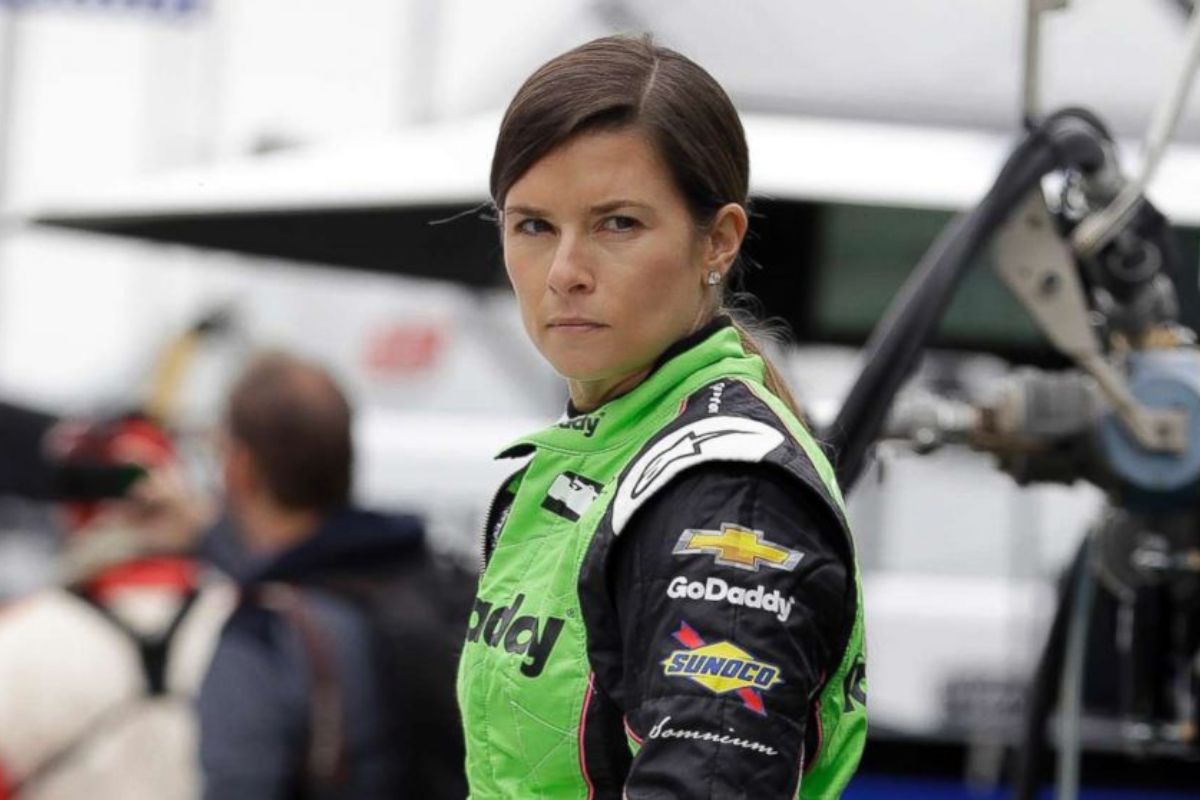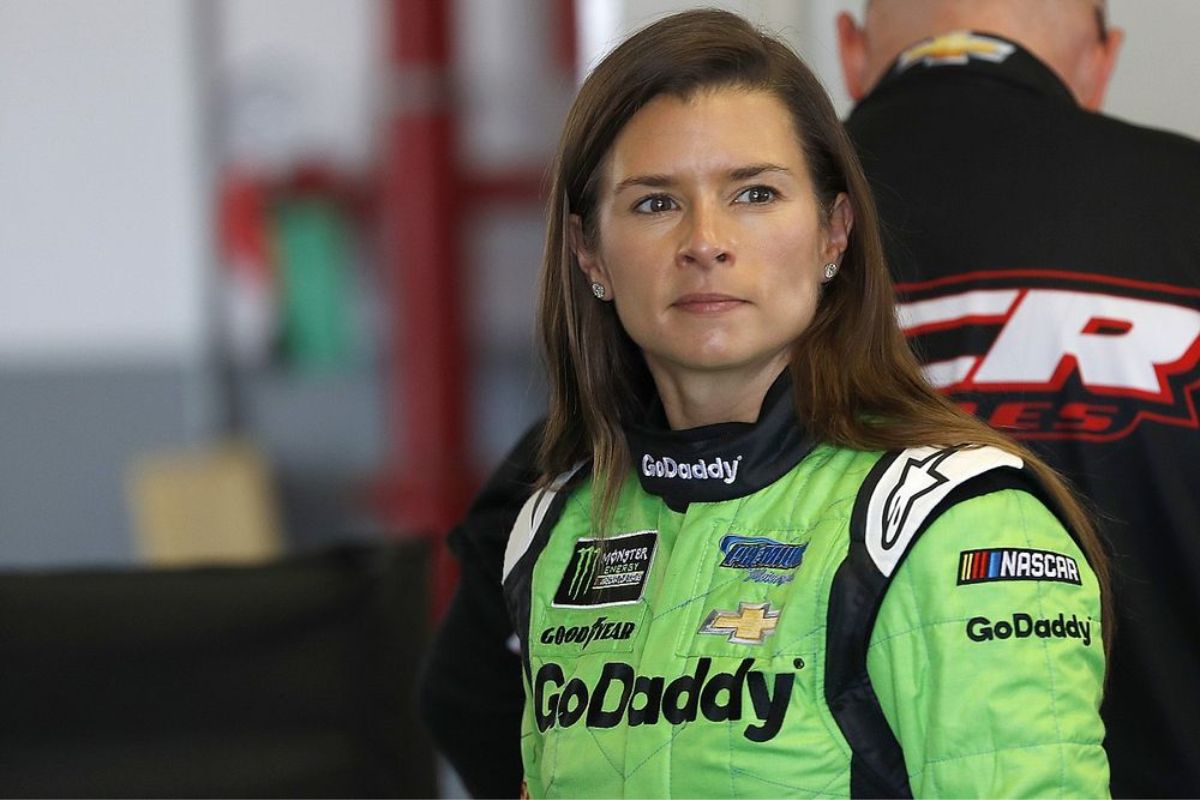Danica Patrick Slams Perfectionist Label: In a striking departure from her often-composed public demeanor, Danica Patrick’s recent denouncement of the ‘perfectionist’ label shines a spotlight on the broader implications of such stereotypes, particularly in high-pressure environments like professional sports. Her emphatic rejection not only highlights the personal struggles associated with such tags but also challenges the societal norms that frequently celebrate, yet silently undermine, mental wellness. As Patrick articulates the invisible burdens of perfectionism, one must ponder about the domino effects of her statements on her peers and the industry at large.
Key Takeaways
- Danica Patrick rejects the ‘perfectionist’ label, emphasizing its negative impact on her mental health.
- She criticizes the unrealistic expectations and pressures associated with perfectionism.
- Patrick advocates for a more balanced and forgiving approach to personal and professional evaluation.
- Her outburst highlights the intense scrutiny and judgment she faces in the male-dominated sports field.
- She calls for a shift in perspective, recognizing perfection as an illusion detrimental to overall well-being.
Danica Patrick’s Challenges in NASCAR
Traversing the world of NASCAR, Danica Patrick faced significant obstacles as the lone woman in a mostly male sport, where her skills were often under scrutiny and publicly doubted. This environment not only highlighted the inherent challenges posed by gender biases but also placed her under a magnifying glass that few of her male counterparts experienced at a similar level of intensity. The skepticism about her abilities, as vocalized by figures like Kyle Petty—who outright dismissed her as ‘not a race car driver’—underscores a broader issue within sports, where women often must demonstrate exceptional skill merely to be recognized as competent.
Analyzing Patrick’s experience requires understanding the structural and cultural dimensions of NASCAR. As a sport deeply entrenched in tradition and particular notions of masculinity, the entry of a woman into this arena disrupted the status quo, provoking a spectrum of reactions from the community, ranging from overt hostility to subtler forms of patronization. These reactions often manifested in public critiques of her racing technique and strategic decisions, critiques not uncommonly levied against male drivers but noticeably amplified in her case due to the novelty of her presence and underlying gender stereotypes.

Handling Pressure and Criticism
The intense scrutiny and public doubt Danica Patrick endured in NASCAR not only tested her racing skills but also her ability to handle stress and criticism with exceptional resilience. Shifting from open-wheel racing to the high-energy, highly competitive domain of NASCAR, Patrick faced immense challenges to validate her capabilities in a different motorsport discipline. Despite often harsh evaluations from fans and pundits who questioned her shift, Patrick’s response was not one of visible frustration or defeat but one of continuous commitment to her racing career.
Analyzing Patrick’s career, it’s evident that her approach to handling criticism involved a profound internalization of her goals and a focus on personal growth rather than external validation. Her steady mindset, highlighted by only seven top-ten finishes in the NASCAR Cup Series and a historic victory at the 2008 Indy Japan 300, demonstrates her ability to maintain performance levels amidst volatility.
Furthermore, Patrick’s consistent demeanor suggests a strategic approach to emotional regulation, a critical skill in managing the rigors of professional sports. By not allowing external criticisms to visibly alter her focus, she demonstrated a mastery over the personal challenges that come with public scrutiny.
Danica Patrick’s Response to Critics
Danica Patrick’s composed demeanor in the face of harsh criticism, such as the comments made by Kyle Petty in 2013, exemplifies her resilience and strategic focus on mental health and professional growth. Petty, a former driver and seasoned motorsport analyst, questioned Patrick’s racing skills, sparking widespread discourse in the sports community. Despite the potential disruption, Patrick’s response was notably calm. ‘I really don’t care,’ she stated, indicating a profound detachment from detractors’ opinions and an intrinsic motivation that aligns more closely with self-improvement rather than external validation.
This response is not just a superficial dismissal but a strategic approach in personal branding and psychological resilience. By openly addressing the need for mental health support, Patrick breaks from traditional athlete stereotypes that often equate emotional vulnerability with weakness. Her acknowledgment of utilizing a therapist serves as an endorsement of professional mental health support, subtly shifting the narrative from her critics’ focus on perfection to her own focus on holistic health and enduring competence.

Perfectionism and Mental Health
Addressing criticism with resilience, Patrick also confronts another formidable challenge: the relentless pursuit of perfectionism and its impact on mental health. In her open discussion with Doug Bopst, Danica Patrick highlighted the pervasive tension of perfectionism that not only shadows professional athletes but also heavily influences their psychological well-being. By stating that ‘perfect is an illusion,’ Patrick articulates an important perspective often overshadowed in high-performance environments where the benchmark is frequently set at flawlessness.
“I believe that we actually can’t see ourselves, we only see ourselves in reflection to someone else, or in a relationship to someone else. So through getting triggered, feeling happy, or relating…all of this stuff is information.”- patrick
The insistence on perfection can be a double-edged sword. On one side, it drives individuals towards exceptional excellence and breakthroughs. However, it simultaneously fosters a fertile ground for chronic stress, anxiety, and a plummeting self-esteem when the set standards are unmet. Patrick’s acknowledgment about the difficulty in achieving a calm perspective amidst heightened emotional states sheds light on the internal conflicts that perfectionism can exacerbate.
“It’s very hard to get into that perspective when you’re emotional and in it. When you’re in it, you’re like Red Mist, freaking out, defensive, angry, whatever.”
“When you’re above it…you’re able to have a much more calm perspective. So perfectionism is probably gonna be something I will always work on because I was rewarded so much for accomplishment.” Patrick said, “Perfect is an illusion.”
This interplay between perfectionism and mental health is not just a personal battle but a cultural phenomenon that demands a shift in perspective. Recognizing perfection as an illusion is an important step in mitigating its detrimental effects on mental health. In her path, Patrick has chosen to focus on cultivating a healthy mindset, a demonstration of her understanding that mental well-being is as important as physical ability in achieving holistic success.
Physical and Mental Well-being
Embracing an integrative approach to health, Danica Patrick incorporated yoga into her routine to improve both her mental clarity and physical agility, important for her high-stress career in NASCAR racing. Recognizing the multifaceted benefits of yoga, Patrick adeptly used this practice to elevate her respiratory efficiency and flexibility, which are paramount in the physically demanding environment of auto racing. This strategic inclusion of yoga highlights a holistic view towards health, acknowledging that mental fortitude is just as important as physical strength in high-performance sports.
Patrick’s commitment to yoga went beyond mere physical exercise; it was a fundamental component of her mental training. The focus on deep, controlled breathing—a core element of yoga—helped her in maintaining composure and focus amidst the intense demands of racing. This practice of mindfulness and concentrated breathing enabled her to manage stress effectively, reducing the psychological burdens that often accompany competitive sports.
“The most common (thing it helps with) is breathing and recognizing how the breath controls everything, and so if you get nervous or anxious or gripping the wheel too tight, it’s pretty automatic for me to just take deep breaths to calm down.” -patrick
Furthermore, Patrick’s advocacy for physical and mental wellness set a precedent for how athletes can sustain their performance through thorough self-care routines. Her approach highlights a critical shift in sports culture, where mental health is increasingly recognized as a cornerstone of athletic success.
“On another level, I think that when you bend, you don’t break. So I think it’s just good for someone doing sports to have flexibility because it’s inevitable that at some point you’re going to bend pretty far.” – Patrick

News in Brief: Danica Patrick Slams Perfectionist Label
Danica Patrick’s public rejection of the ‘perfectionist’ label highlights the profound psychological burdens that such expectations can impose. Her honest discussion emphasizes the need for a shift in how societal expectations are managed within professional sports.
Prioritizing mental health over perfectionism not only cultivates healthier mindsets among athletes but also advocates for a more compassionate approach to evaluating performance, thereby promoting general well-being and sustainable success in such environments.
Also Read: Danica Patrick’s Stunning Racing Return Delights Fans


